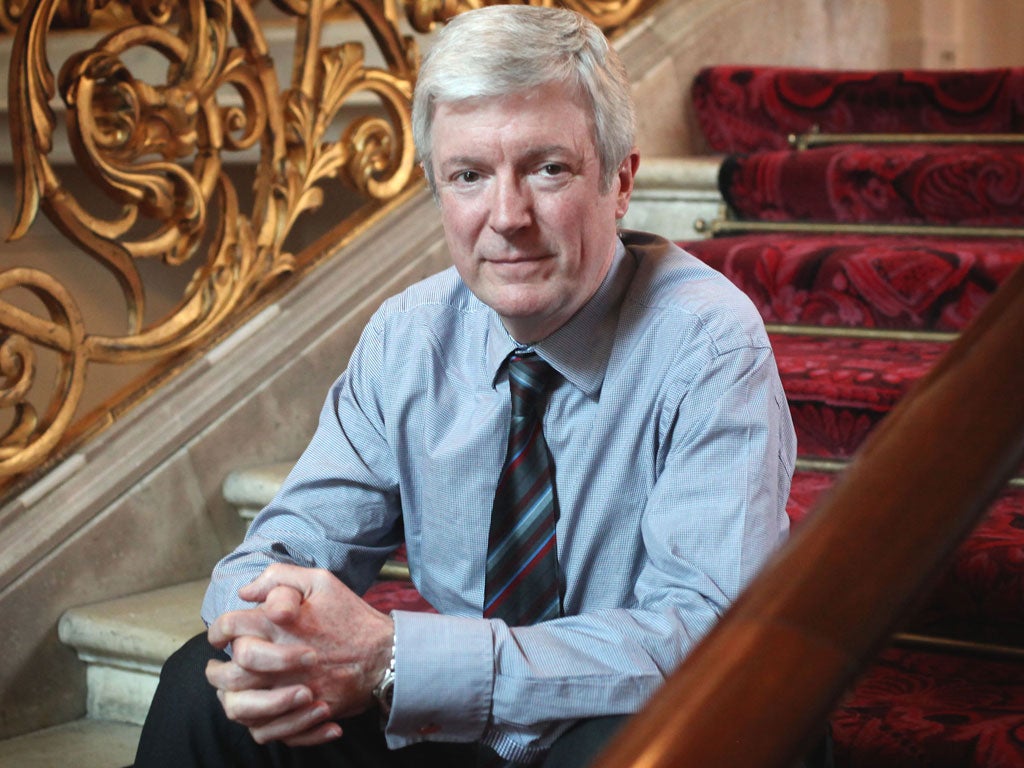The elite needs shaking up, and new BBC Director General Tony Hall is in a perfect position to act
For too long the BBC has been a bubble. Will it produce flagship shows relevant to the vast majority of people in Britain - or dwindle into cultural irrelevance?

Compare and contrast Question Time and Newsnight. They're both flagship programmes on the BBC, and both routinely attract large audiences. They both tend to centre on politics as the core discussion topic. But beyond that, they're vastly different. Question Time faces a public audience; Newsnight doesn't. Newsnight interrogates politicians via the presenter; Question Time allows the public to do it with a moderator to keep decorum.
Question Time's panel is usually composed of five people from quite different backgrounds – some from politics, but there's usually a couple of people from way outside the Westminster beltway; businesspeople and other people famous for their achievements. Newsnight leans toward politicians, political advisors and think-tankers from the London establishment.
I recall a Newsnight show from a couple of months ago now, which was debating the place of young black males in society. The discussion was led by white middle-class male Gavin Esler, who was joined by three other white middle-class males and a white middle-class woman. How the BBC think this is representative journalism I'm not sure.
Six out of seven Newsnight presenters are privately educated, in a country where fewer than 1 in 10 are. Professions like journalism, the law, and finance used to provide great ladders for social mobility but they are now the reserve of the privileged few. As a public organisation the BBC has an opportunity to lead and demonstrate how those professions can provide ladders for mobility once again.
The BBC is in undeniably in crisis. Tony Hall has been appointed the new Director General – but his is an unenviable position at this time of deep soul-searching in one of the nation's (indeed the world's) most important media institutions. But 'Auntie' - as the BBC is affectionately known - will have to change a lot more than than the man at the top if it's to forge itself anew and shake off the malaise and scrutiny it finds itself under. It needs to dig deep and break free from the unrepresentative and elite London bubble that runs it.
Newsnight is the first place this new focus should be applied to. It has become the echo chamber of the political class; an out-of-touch daily dose of 'people like us' talking about themselves and things of importance to them. The programme has been mired in controversy because of the abysmal handling of the Jimmy Savile and Lord McAlpine stories. It's time it changed and this crisis is an opportunity that shouldn't be wasted. At a time of deep apathy and division in Britain, we need a flagship news analysis programme that brings people together around issues of national importance. I've been campaigning in various by-elections recently, and it's striking how apathetic normal people are, not just to the political world but increasingly the London-centric media world.
A taxi driver in Newport told me last week that he used to watch Question Time every week and Newsnight most nights. Now he's just down to the odd Question Time four or five times a year, and feels that the people on the screen no longer speak either for or to people like him. Britain is increasingly being run by an out-of-touch London elite, with no grounding in what motivates a group of people far more important than them: the British public who elect them and pay their salaries.
Change is needed - the elite needs shaking up. The BBC leadership, with Tony Hall at its forefront, would be wise to remember who pays its salaries and find a way to make its flagship programmes relevant once more to the people who make this country what it is. If they think Eastenders and Snog Marry Avoid? are all that the wider population demands or deserves, they should think again.
Join our commenting forum
Join thought-provoking conversations, follow other Independent readers and see their replies
Comments
Bookmark popover
Removed from bookmarks